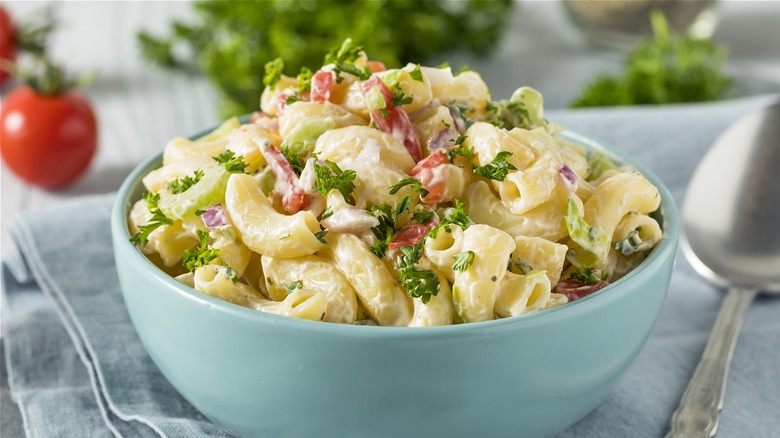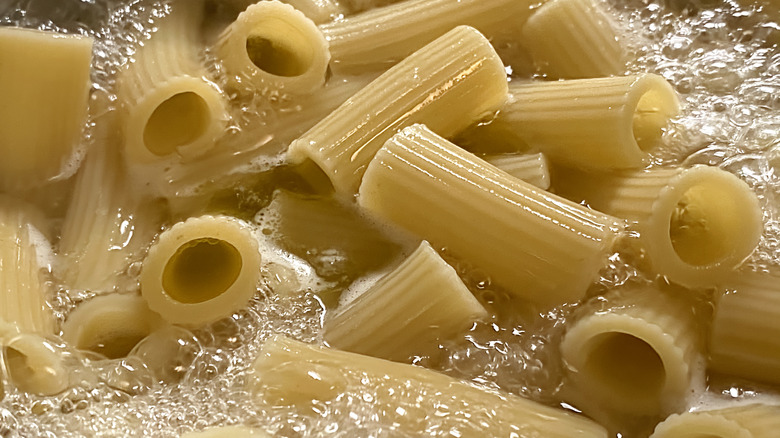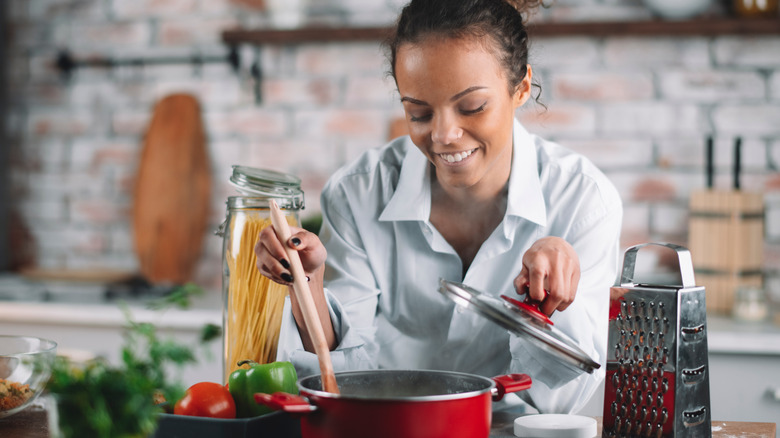Go Against Your Instincts And Overcook The Pasta For Macaroni Salad
Overcooked pasta is usually frowned upon, and for good reason — no one wants to bite into gummy pasta. If you've ever cooked pasta for too long on the stove, you might've had to use the ice water hack to save it and prevent it from being unappetizing for your dinner guests. But overcooked pasta isn't always a bad thing. If you're making pasta salad, you want to break the rules and overcook your pasta because it will make the pasta softer and therefore more absorbent of the mayo and other ingredients that you're putting into the salad. The result? A delicious pasta salad that's never bland.
But there's another good reason to cook your pasta for a bit longer on the stove — it prevents the pasta from becoming hard. Now, when cooked pasta sits on the counter and gets cold, its starch molecules harden, and this causes the pasta to have a stiff texture instead of being a bit chewy. Since you want to enjoy pasta salad when it's cold, never hot, you should therefore always overcook it.
How much longer to cook pasta for a macaroni salad
To make sure your pasta salad is delicious to eat, you should let the pasta cook for two or three minutes longer than you would when making pasta for a hot dish. Whether you're tossing macaroni or penne into your pasta salad, you don't want to cook any type of pasta for longer than that amount of time, as this could cause it to become mushy — that's just as bad as eating hard pasta, so it's best to strike a balance between the two extremes. This cooking time will give you lovely al dente pasta that's still got some chewiness.
Note that if you want to cook fresh pasta that you've made from scratch, it'll cook faster than if you're using boxed pasta. It has a softer texture because of the raw eggs and extra water that are in it, so keep an eye on it and give it a taste test to ensure it's al dente. This will prevent you from making gloopy pasta.
Other tips for cooking pasta salad
Adding mayo or dressing to your pasta noodles when they're still warm after being cooked is a good idea — the pasta will more easily absorb their flavors. But if you don't want to add mayo or dressing to your pasta noodles when they're warm — like when you're preparing the dish ahead of time and don't have the ingredients to make it quite yet — you should place the pasta on a cooking sheet and sprinkle olive oil over it. This is an important tip to prevent the noodles from getting stuck together.
You should also avoid rinsing your pasta after it's cooked, and this is a rule to follow whether you're making a hot or cold pasta dish because rinsing pasta removes the starch coating that enables sauce to stick to it better. It's a no-no if you want to cook pasta perfectly every time. When making cold pasta salad, you want it to be as juicy and flavorful as possible, so don't ever be afraid of cooking your pasta a little longer — it's one of the best tips for making yummy, delicious pasta salad like a pro.


